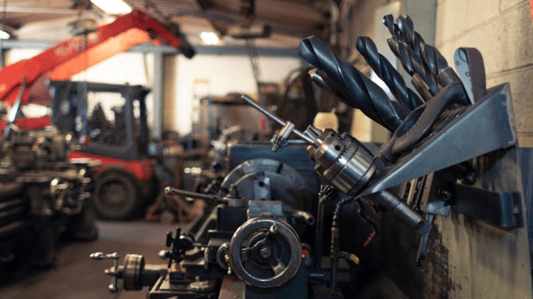Get Your Supplies Sorted: Stationery and Office Supply InspectionWhen it comes to running a business, school or any other place that requires a plethora of supplies, it is important to keep them organized and in proper condition. This is where stationery and office supply inspection plays a vital role. Through this article, we aim to provide useful insights on what that entails and how you can ensure that your supplies are in excellent condition.What is Stationery and Office Supply Inspection?Stationery and office supply inspection is the process of examining, appraising, testing and reviewing the office equipment, furniture, stationery and other supplies present in a workplace to guarantee they are safe, clean, and in good working condition. This inspection is important to ensure that the workplace meets the necessary safety regulations, and that employees have access to appropriate resources to work efficiently.Why Do You Need to Inspect Your Stationery and Office Supplies?There are a multitude of reasons why you should inspect your stationery and office supplies, such as:Maintaining safety standards in the workplaceAvoiding and preventing accidentsEnsuring the longevity of equipment and suppliesPromoting employee productivity by providing the required tools and equipmentMeeting the standards and regulations set by governing bodiesWhat Items Should be Inspected? Stationery and office supply inspection covers a vast array of items in the workplace, including:Office furniture, including chairs, desks, filing cabinets, and bookcasesComputer equipment, including desktop computers, laptops, printers and scannersElectrical equipment, including power outlets and appliancesGeneral office supplies like pens, paper, staplers, and tape dispensersItems used during non-office hours like tools in a maintenance storeroomHow Often Should You Inspect Your Stationery and Office Supplies? The frequency of inspections depends on several factors such as:The size of the officeThe number of employeesThe type of equipment and suppliesThe safety regulations and routine check-ups set by the standard governing bodiesGenerally, it is recommended to conduct inspections on a quarterly basis. However, this will vary depending on the individual workplace's needs and regulations.How Can You Conduct an Effective Stationery and Office Supply Inspection?Conducting an effective stationery and office supply inspection requires the following steps:Allocating appropriate time and resources necessary for inspectionEvaluating what needs to be inspected and preparing a checklistThoroughly cleaning the items being inspectedExamining the workspace for cluttered areas and potential hazardsInspecting every item on the checklist for damages, defects, and wear and tearNoting down any issues and determining an appropriate course of actionFixing minor damages or defects yourself or contacting professionals who specialize in fixing particular problemsMaintaining a record of the inspection and repairs for future reference purposesDiscussing the findings of the inspection with the employees and taking their suggestions to improve the workplaceScheduling the next inspection and adhering to the set timelinesHow Can You Ensure the Longevity of Your Stationery and Office Supplies?Here are a few tips to ensure that your stationery and office supplies last as long as possible:Ensure that the supplies are stored in appropriate containers or cabinets, away from direct sunlight or moisture.Train employees on the proper usage of equipment and supplies to avoid mishandling or breakageEnforce strict cleaning procedures for every item in useUndertake routine maintenance checks and repairsReplace any supplies or equipment that have gone beyond the recommended lifespan or that have been frequently damaged beyond repair.Why Should You Hire Professionals for Stationery and Office Supply Inspection?Hiring professionals for stationery and office supply inspection is important for the following reasons:They have the knowledge and expertise to identify potential hazards, defects and damages that may go unnoticed by a non-professionalThey have the necessary equipment and tools necessary for conducting thorough inspectionsThey can provide solutions and recommendations to improve your workplace and keep it up to safety standardsThey can help you meet the regulations set by governing bodies and potentially avoid any penalties or fines due to non-compliance.Conclusion:Stationery and office supply inspection is an important aspect of workplace management that should not be overlooked. Inspections should be conducted regularly to ensure safety, promote longevity, avoid penalties, and enhance productivity. Regular inspections help identify areas of improvement and resolve potential safety or productivity issues. By following the guidelines given above, you can ensure that you have a well-managed and organized workspace that delivers the expected goals and complies with regulations.Quote InquiryIf you have any questions, please let us know asap!










